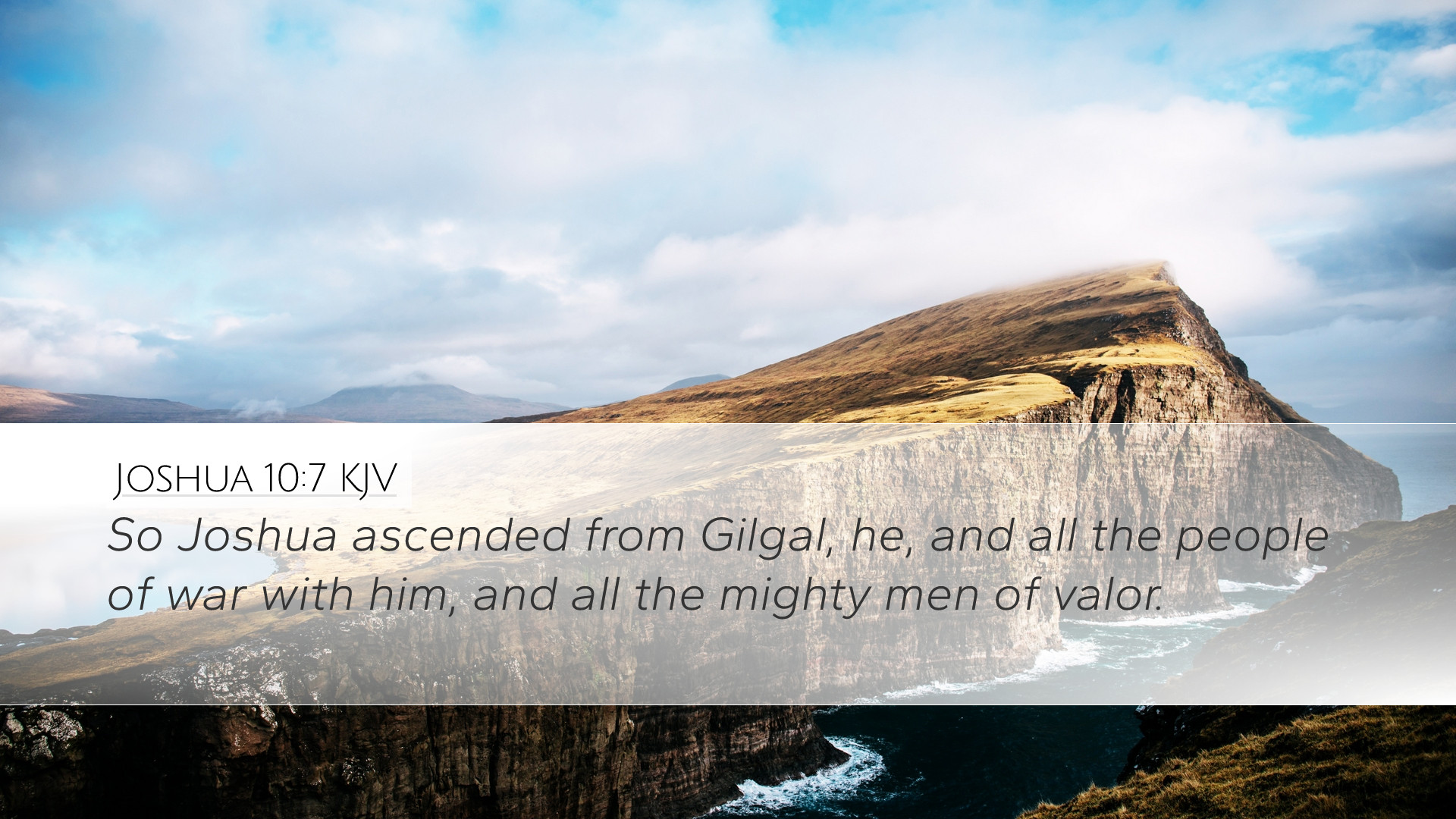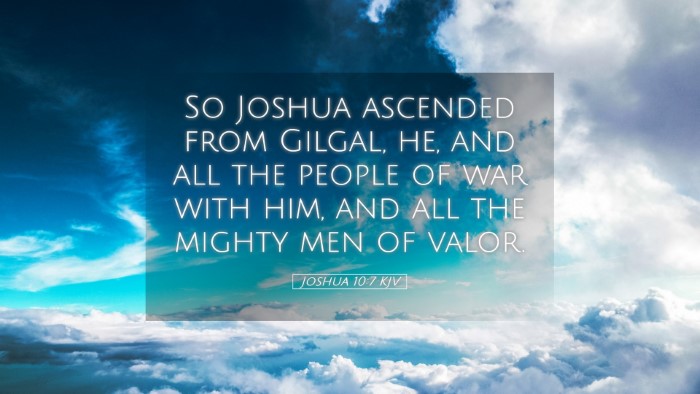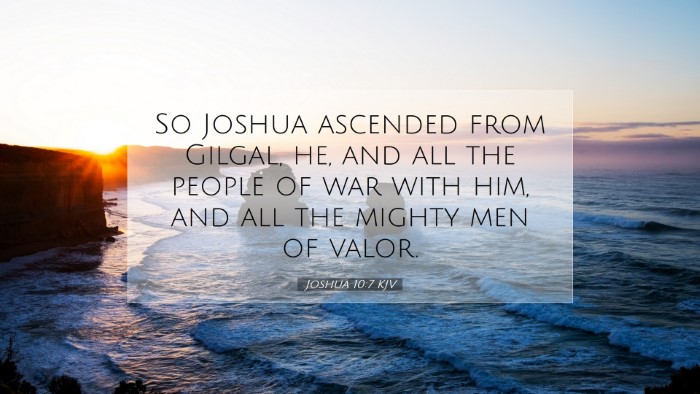Old Testament
Genesis Exodus Leviticus Numbers Deuteronomy Joshua Judges Ruth 1 Samuel 2 Samuel 1 Kings 2 Kings 1 Chronicles 2 Chronicles Ezra Nehemiah Esther Job Psalms Proverbs Ecclesiastes Song of Solomon Isaiah Jeremiah Lamentations Ezekiel Daniel Hosea Joel Amos Obadiah Jonah Micah Nahum Habakkuk Zephaniah Haggai Zechariah MalachiVerse
Joshua 10:1 Joshua 10:2 Joshua 10:3 Joshua 10:4 Joshua 10:5 Joshua 10:6 Joshua 10:7 Joshua 10:8 Joshua 10:9 Joshua 10:10 Joshua 10:11 Joshua 10:12 Joshua 10:13 Joshua 10:14 Joshua 10:15 Joshua 10:16 Joshua 10:17 Joshua 10:18 Joshua 10:19 Joshua 10:20 Joshua 10:21 Joshua 10:22 Joshua 10:23 Joshua 10:24 Joshua 10:25 Joshua 10:26 Joshua 10:27 Joshua 10:28 Joshua 10:29 Joshua 10:30 Joshua 10:31 Joshua 10:32 Joshua 10:33 Joshua 10:34 Joshua 10:35 Joshua 10:36 Joshua 10:37 Joshua 10:38 Joshua 10:39 Joshua 10:40 Joshua 10:41 Joshua 10:42 Joshua 10:43


Commentary on Joshua 10:7
Introduction
The verse Joshua 10:7 states, “So Joshua ascended from Gilgal, he and all the people of war with him, and all the mighty men of valor.” This key moment during the Israelite conquest of Canaan is rich in meaning and invites exploration from several theological perspectives. Commentators such as Matthew Henry, Albert Barnes, and Adam Clarke have provided detailed insights that can benefit pastors, students, theologians, and Bible scholars alike.
Contextual Background
Historical Setting
This passage occurs during a pivotal period in the history of Israel, where Joshua leads the Israelites into the Promised Land after the death of Moses. It captures the moment when the Gibeonites, having made a peace treaty with Israel, call upon Joshua to defend them against the Amorite kings who were attacking them. This scenario sets the stage for a demonstration of divine intervention and Israel’s military prowess.
Detailed Analysis
Joshua’s Leadership
Matthew Henry emphasizes the decisiveness of Joshua’s character. He readily takes action in response to the Gibeonites' plea for help. As a leader, he exemplifies obedience to God's commands and acts with courage. Henry notes how Joshua ascended from Gilgal, symbolizing a movement not just geographically but spiritually as he leads his people into battle with faith.
Gathering of the Mighty Men
Albert Barnes points out the significance of the phrase "all the mighty men of valor." This phrase highlights the quality and strength of the soldiers Joshua gathered to confront the enemy. It signifies the unity and determination among the Israelites, which was critical for the success of their military campaigns.
Theological Implications
God’s Sovereignty and Guidance
In Adam Clarke's exposition, the theme of divine sovereignty emerges prominently. The gathering of the forces under Joshua's command is seen as part of God's overarching plan for Israel. Clarke reflects on the importance of seeking God’s guidance in every venture, emphasizing that Joshua's prompt response indicates his reliance on God’s instructions.
The Call to Action
This verse serves as a strong call to action for contemporary believers and leaders. It illustrates that faith must be accompanied by works. The readiness of Joshua and his men exemplifies a crucial principle: true faith propels believers into action, especially in times of crisis. This theme resonates with the teachings of James 2:17, which states that faith without works is dead.
Spiritual Lessons and Applications
Conclusion
In summary, Joshua 10:7 serves as a multifaceted lesson in leadership, faith, and action. The commentary from Matthew Henry, Albert Barnes, and Adam Clarke reveals how this verse encapsulates key themes essential for understanding God’s dealings with His people. The call to engage in spiritual warfare, the necessity of community, and the imperative of obedience emerge as critical lessons for today’s believers.
Inspiration for Further Study: Readers are encouraged to reflect on how the lessons from Joshua’s leadership and his response to crises can be applied in contemporary ministry and personal faith journeys.